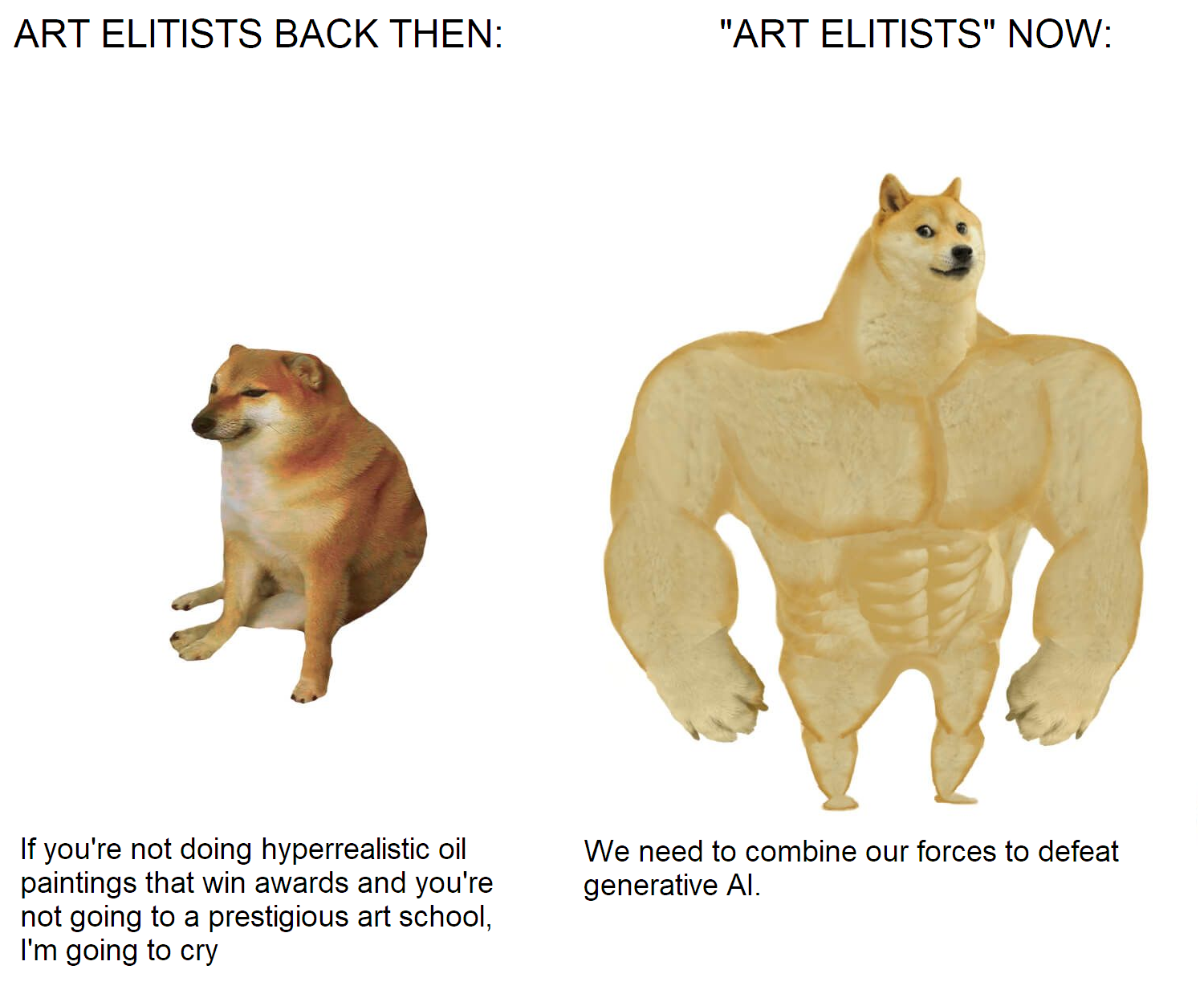this post was submitted on 13 Jul 2024
365 points (100.0% liked)
196
16489 readers
1942 users here now
Be sure to follow the rule before you head out.
Rule: You must post before you leave.
founded 1 year ago
MODERATORS
you are viewing a single comment's thread
view the rest of the comments
view the rest of the comments

How does copyright law cover this?
Copyright gives the copyright holder exclusive rights to modify the work, to use the work for commercial purposes, and attribution rights. The use of a work as training data constitutes using a work for commercial purposes since the companies building these models are distributing licencing them for profit. I think it would be a marginal argument to say that the output of these models constitutes copyright infringement on the basis of modification, but worth arguing nonetheless. Copyright does only protect a work up to a certain, indefinable amount of modification, but some of the outputs would certainly constitute infringement in any other situation. And these AI companies would probably find it nigh impossible to disclose specifically who the data came from.
Copyright gives the copyright holder exclusive rights to modify the work, to use the work for commercial purposes, and attribution rights.
Copyright remains a system of abuse that empowers large companies to restrict artistic development than it does encourage artists. Besides which, you're failing to consider transformative work.
As it is, companies like Disney, Time Warner and Sony have so much control over IP that artists can't make significant profit without being controlled by those companies, and then only a few don't get screwed over.
There are a lot of valid criticisms about AI, but the notion that training them on work gated by IP law is not one of them... Unless you mean to also say that human beings cannot experience the work either.